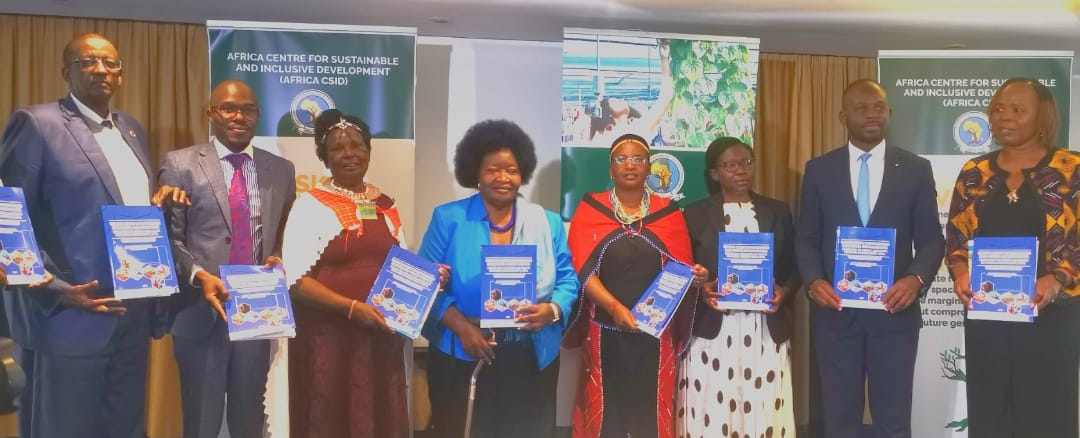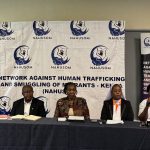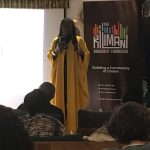A new report launched today reveals the untapped power of women in resolving climate conflicts. The study, released at Heron Hotel by the Africa Centre for Sustainable and Inclusive Development (CSID), highlights how women in Baringo County’s indigenous communities are bridging divides amid worsening droughts and violence.
Despite facing displacement and insecurity, women from the Endorois and Ilchamus groups are emerging as key peacebuilders. The findings show they mediate disputes and strengthen community resilience, even while bearing the heaviest burdens of climate shocks.
“Women’s role in peacebuilding isn’t optional it’s essential,” said Mohamed Bare the Secretary, Peace building and conflict management in the Ministry of Interior and National administration. He noted Kenya’s commitment to UN Resolution 1325 on women in conflict resolution, adding, “This report proves what we’ve long advocated: sustainable peace needs women’s leadership.”
However, the research exposes how cattle rustling often dismissed as tradition is escalating due to climate pressures. Homabay Senator Moses Kajwang’ condemned the practice as “organized crime fueled by vanishing grasslands.” He stressed, “When men start wars, women end them. We must invest in their solutions.”
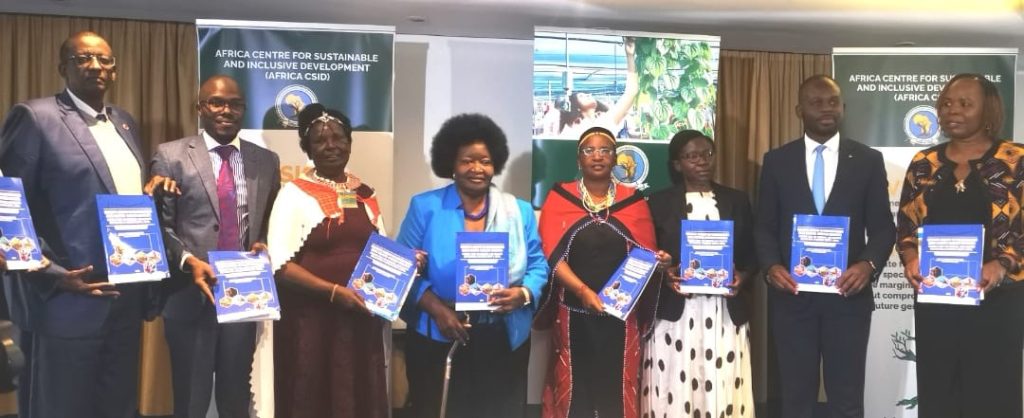
While many women in these communities lack formal schooling, the report found they hold vital traditional conflict-resolution knowledge. It urges support for carbon credit programs benefiting indigenous environmental stewards and smarter peacekeeping strategies.
With Kenya preparing its next action plan on women and security, experts say the timing is critical. “Climate chaos won’t wait,” Kajwang’ warned. “Arm women with education, not guns, to secure our future.”
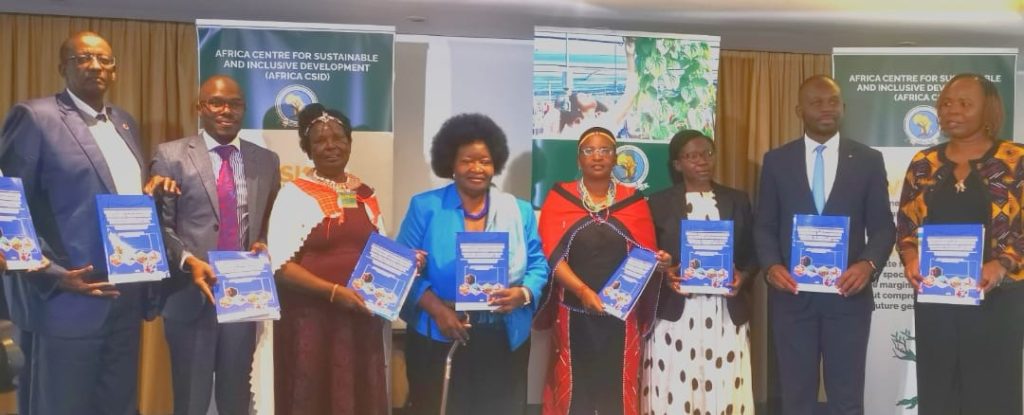
Salome Awuonda, Executive Director of Africa Centre for Sustainable and Inclusive Development, stated, “This report amplifies the voices of marginalized communities in Baringo, where climate-induced conflicts are disrupting lives. We’re seeing tragic consequences – children becoming soldiers, girls forced into early marriages, and boys growing up without fathers. These aren’t just research findings; they’re real stories from communities showing how climate change fuels a cycle of conflict and lost education.”
“Our recommendations come directly from the women, men and youth living through these challenges daily. They’ve shown us how women already mediate conflicts and protect natural resources, yet need proper support. This is why we’re working across all levels – from Parliament to county governments to village chiefs – to turn these solutions into action.”
Read more on:
From Slum to Estate: President to Hand Over First Affordable Housing Units in Mukuru.
“We call on all partners – government, media, civil society and the private sector – to join us in implementing these community-driven solutions. The time for reports sitting on shelves is over. Together, we must ensure children return to classrooms instead of battlefields, and that women’s peacebuilding efforts get the recognition and resources they deserve.”

